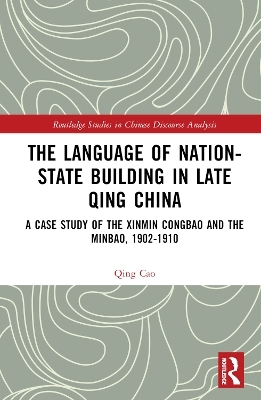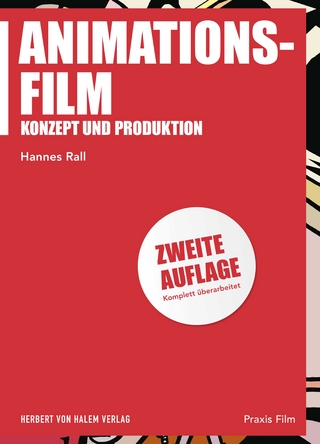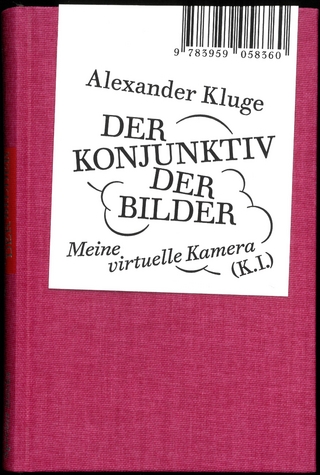
The Language of Nation-State Building in Late Qing China
Routledge (Verlag)
978-1-032-07421-4 (ISBN)
The Language of Nation-State Building in Late Qing China investigates the linguistic and intellectual roots of China’s modern transformation by presenting a systematic study of the interplay between language innovation and socio-political upheavals in the final decade of the Qing Dynasty.
This book examines the formations, internal tensions, and promotion of such macroconcepts as ‘nation people’ (guomin 国民), nation (minzu 民族), society (qun 群), state (guojia 国家) and revolution (gemin 革命) as novel ideas borrowed from Europe but mediated through Meiji Japan. Using corpus-based discourse analysis of the full-text corpus (4.2 million words) of the two most influential periodicals, Xinmin Congbao (新民丛报) and Minbao (民报), this book scrutinises the multi-faceted formulations of these concepts and their impact. It underscores the adaptation and appropriation of European post-enlightenment values to the socio-political conditions of late Qing society.
The analysis centres on the epic debate (1905-7) between these two periodicals that offered two distinctive visions of future China. Comparable to the great eighteenth-century debate between Edmund Burke and Thomas Paine on the French Revolution, the Chinese debate has hitherto attracted little scholarly attention outside China. Yet it not only turned the tidal wave of public opinion against the Manchu monarchy and contributed to its downfall in 1911; it has also given rise to a radical undercurrent of intellectual thinking whose ramifications have been keenly felt throughout twentieth-century China. This book represents the first study in English on this press debate that contributes significantly to the intellectual foundation of modern China.
This book will be useful and relevant to academics, postgraduate students and final year undergraduate students in the field of Chinese studies, and anyone interested in the role of language in shaping modern intellectual history.
Qing Cao is Associate Professor in Chinese Studies at the School of Modern Languages and Cultures, Durham University.
Preface
Acknowledgements
Abbreviations
Introduction Intellectual and Linguistic Genesis of the Chinese Nation
Chapter One The Lure of Utopia: Liang Qichao and Xinmin Congbao
Chapter Two The Discourse of Xinmin: Mindset Remodelling
Chapter Three The Press Debate between Xinmin Congbao and Minbao, 1905-1907
Chapter Four The Discourse of Guomin: Rule of the People vs. Rule of the State
Chapter Five Translating ‘Nation’: The Remaking of the Chinese Society
Chapter Six Rupture in Modernity and the Struggle for National Identities
Appendix 1 List of key articles in the late Qing press debate corpus
Appendix 2 Top 20 concept nouns in the late Qing press debate
Appendix 3 Top 50 concept nouns in the full-text of Xinmin Congbao and Minbao
Appendix 4 Occurrence frequency of the term ‘state 国家’, 1830-1930
Appendix 5 Occurrence frequency of the term ‘nation 民族’, 1830-1930
Appendix 6 Occurrence frequency of the term ‘revolution 革命’, 1830-1930
Appendix 7 Occurrence frequency of the term ‘democracy 民主’, 1830-1930
Appendix 8 Occurrence frequency of the term ‘people’s rights 民权’, 1830-1930
Appendix 9 The top 30 collocation word chains for guomin in the debate corpus
Index
| Erscheinungsdatum | 12.08.2022 |
|---|---|
| Reihe/Serie | Routledge Studies in Chinese Discourse Analysis |
| Zusatzinfo | 12 Tables, black and white; 14 Line drawings, black and white; 14 Illustrations, black and white |
| Verlagsort | London |
| Sprache | englisch |
| Maße | 156 x 234 mm |
| Gewicht | 326 g |
| Themenwelt | Geisteswissenschaften ► Geschichte |
| Sozialwissenschaften ► Kommunikation / Medien ► Medienwissenschaft | |
| Sozialwissenschaften ► Soziologie ► Spezielle Soziologien | |
| ISBN-10 | 1-032-07421-3 / 1032074213 |
| ISBN-13 | 978-1-032-07421-4 / 9781032074214 |
| Zustand | Neuware |
| Informationen gemäß Produktsicherheitsverordnung (GPSR) | |
| Haben Sie eine Frage zum Produkt? |
aus dem Bereich


